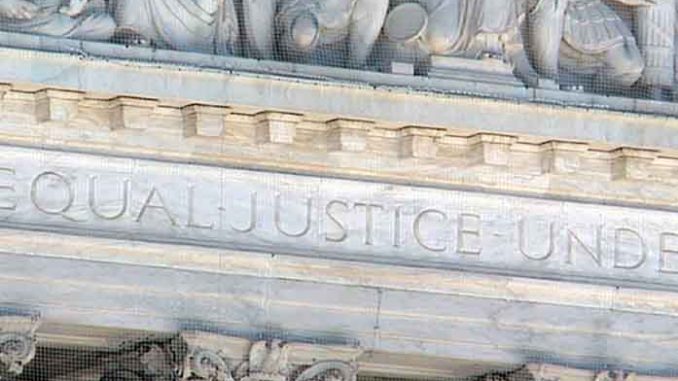
In a decision which will change how the City of Bisbee handles complaints about procurement contracts, the Arizona Court of Appeals ruled Wednesday that the city council is required to address a protest filed by two citizens over a multi-million dollar deal for operation of the city’s wastewater treatment plant.
The Dec. 30 decision requires a Cochise County judge to order the Bisbee city council to hear an administrative appeal initiated more than two years ago by residents Jeffery Harris and Donna Pulling, who contend a five-year procurement contract approved in November 2018 with Jacobs, a global environment services company, did “not comply with applicable law and regulations.”
“In reviewing a trial court’s decision to dismiss a claim, we accept as true all facts asserted in the complaint,” the unanimous appellate decision states. “For the foregoing reasons, we reverse the trial court’s order granting the city’s motion to dismiss and remand for entry of an order directing the city to hear and decide Harris’s administrative appeal.”
Court records show the Jacobs contract is expected to cost the city $3 to $4 million, but just days after it was approved, Harris and Pulling filed a protest with then-City Manager Robert Smith. Among their complaints was that the city council failed to demonstrate it had funds to cover the first year’s $730,000 cost and that the cost for each of the remaining four years would have to be negotiated in the future.
The city’s attorney had cautioned the council prior to the November 2018 vote that there was no escape clause in the contract except for situations involving a breach of contract by Jacobs. But the Harris-Pulling protest argued that city code requires a “subject to the availability of funds” provision that allows the city to cancel a contract due to a lack of future funds.
On Dec. 3, 2018, Smith issued a memorandum to the council advising that “no further action is necessary” on the protest because residents and taxpayers were not “interested parties,” the language used in the Bisbee City Code for challenging a procurement contract.
Smith’s memo, which did not address the alleged deficiencies with the Jacobs deal, referenced legal advice from the Cochise County Attorney’s Office, which served at the time as the city’s attorney.
A subsequent administrative appeal filed by Harris and Pulling in compliance with city code was never taken up by the council. That prompted Harris to file a petition for special action in the Cochise County Superior Court where the case was assigned to Judge Laura Cardinal.
Marshal Humphrey, an attorney with the city’s risk management provider, argued to Cardinal that only “a bidder or prospective bidder on the contract” qualified as an interested party for purposes of challenging a procurement action. However, the term “interested party” is not defined in Bisbee’s city code.
Humphrey also argued residents and taxpayers have no standing in such challenges, even if the city had entered into a faulty contract. That meant the city council did not have to take up the appeal from Smith’s denial of the protest, he contended.
Cardinal sided with the city and dismissed Harris’ petition. Harris then filed a timely appeal.
“We review issues of law, including a court’s interpretation of a city code, de novo,” the appellate decision states, noting that per Bisbee’s city code any “interested party may protest a solicitation issued by the City, or the proposed award or the award of a City contract.” The code also states the city manager “must issue written decisions in response to contract protests.”
If an appeal of the city manager’s decision on the protest is filed, the code states the City Council “shall hear and consider the appeal within two (2) regular meetings” at which time the protester and the City Manager “shall be given a reasonable opportunity to be heard in the matter.”
According to the appellate decision, “the code ‘does not provide for any exception to its requirement that the Bisbee City Council hear and consider all appeals taken from a city manager’s denial of a protest lodged under (City Code 3.5.20) regardless of the protester’s standing.”
The decision notes the city council could ultimately conclude Harris and Pulling do not have legal standing to protest the Jacobs contract, but that does not allow the council to bypass the procedure mandated in the city code.
The court of appeals ruled Cardinal “erred as a matter of law” by not ruling for Harris on the issue of the city council’s obligation to hear the administrative appeal and abused her discretion in granting the city’s motion to dismiss. However, the decision does not take affect for 30 days to allow the city and its risk management provider time to petition for review by the Arizona Supreme Court.
Harris, who has represented himself in the special action case and appeal, was also awarded his costs as the prevailing party.
“What I think is crucial for people to know is how a former Bisbee city attorney made public comments about the cost of defending this action -which he claimed was in the tens of thousands of dollars- when all the city had to do was obey their own code for handling an administrative appeal,” Harris told Arizona Daily Independent, adding that “it is unfortunate that (city officials) are trying so hard to chill taxpayer involvement.”
